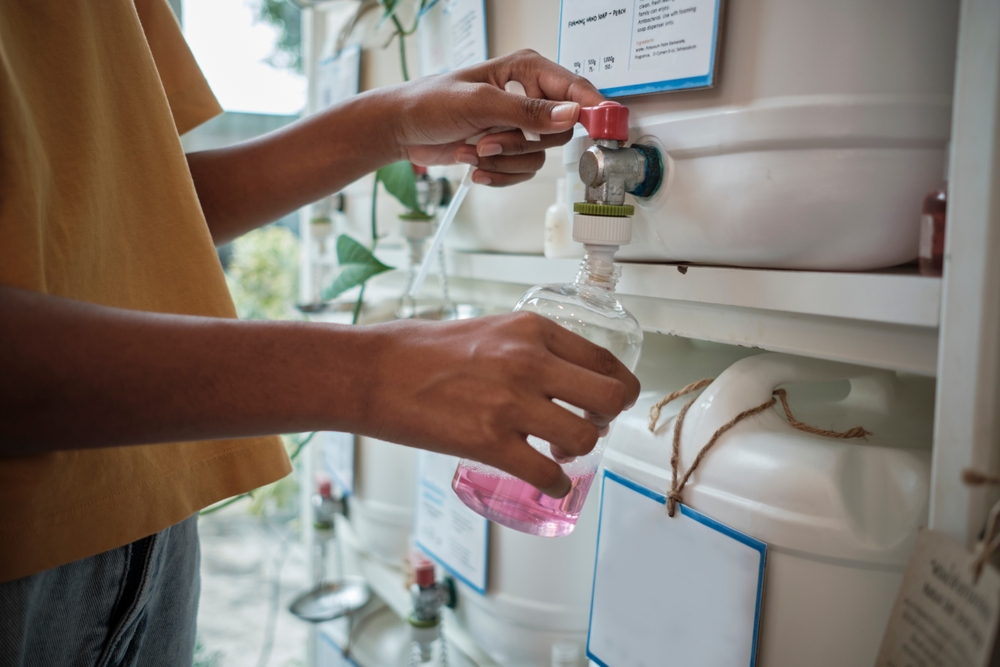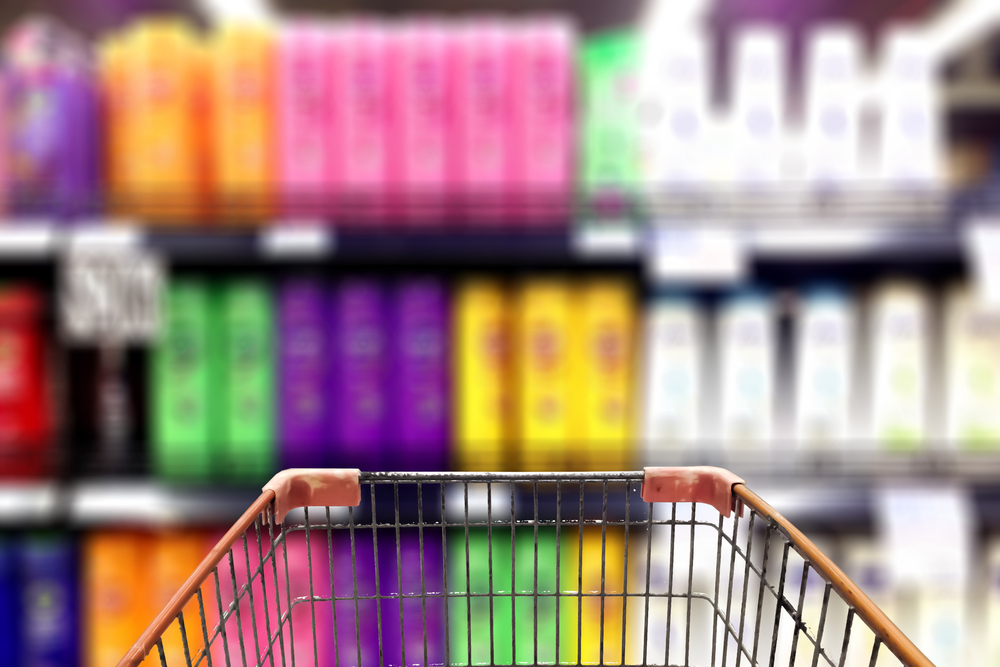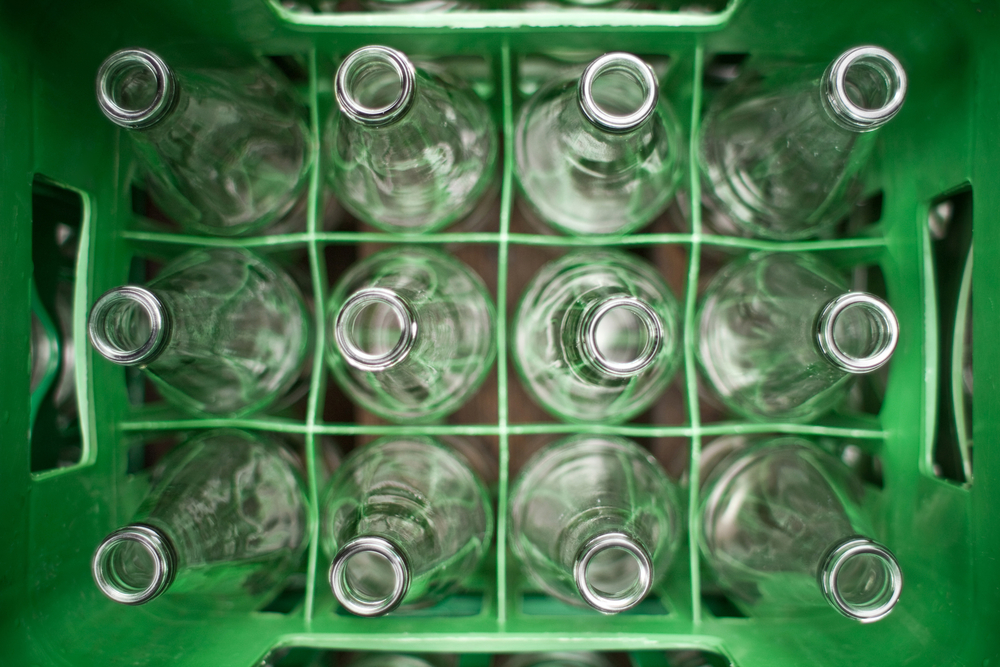
A few years ago, a Zero Waste shop opened near my home at the time. I was thrilled to buy common household goods, like hand soap, in reusable, plastic-free packaging. Especially because I was tired of my garbage can overflowing with unrecyclable plastic packaging. Like everyone, I need to buy soap, laundry detergent, shampoo, and so much more, but I can’t control how these things are usually packaged.
Although I love shopping at local Zero Waste stores, I know they aren’t a widescale solution to packaging waste. Refillable and reusable goods can be more costly than buying single-use goods at a major retailer. I am privileged to drive, own a car, and budget for refillable goods. And I can usually find the time to drive out of my way to shop at a Zero Waste store – even if it’s not in my neighborhood.
Almost everything at most stores, from food to hygiene products, is sold in single-use packaging – most of which is made from plastic. In fact, almost one third of our waste in the U.S. is packaging.
For decades, consumers have been told it’s their job to recycle all this waste. But this is a false narrative cooked up by the corporations making and selling wasteful packaging. Here’s the truth: Most packaging isn’t recyclable in the first place.
Recycling is a complex system – one that clearly isn’t working. But we can fix recycling and reduce packaging waste one step and one policy at a time.

Packaging Reduction and Recycling Laws are an excellent place to start. These laws hold corporations like Amazon and Walmart accountable for the waste they create and incentivize them to make packaging more recyclable and less wasteful.
A good Packaging Reduction and Recycling Law will require companies that sell products in single-use plastic packaging to transition to non-toxic, refillable packaging. This is not only a win for the environment, but also for human health, as plastics contain harmful chemicals. I can’t wait for the day when I can go on a weekly Target run and refill non-toxic, stainless steel containers with shampoo, hand soap, pasta, and beans. Or when I can buy toothpaste that doesn’t come wrapped in unnecessary cardboard boxes or plastic packaging. Packaging Reduction and Recycling Laws can create the right financial incentives to ensure that these reusable goods will be reasonably priced and within my budget.
Another Zero Waste policy that can move us towards large-scale reuse: Bottle Bills. These are the best recycling programs we have for beverage containers. Right now, Bottle Bills place a small deposit on beverage containers that consumers pay when they purchase a drink. When consumers finish their beverages and return the empty containers to redemption centers or reverse vending machines, they get their deposit back. But Bottle Bills have even greater potential. Modern Bottle Bills can help implement robust refill systems for businesses and consumers alike.

Think about it this way: You go out to your local brewery and buy a six-pack of your favorite beer. That six-pack comes in glass bottles that you can return, just like you would in any other bottle bill program. But, instead of being crushed and recycled, the bottles are instead washed and sanitized so that they can be refilled. This would keep these glass bottles in circulation over and over, saving money, energy, and resources.
Every single-use item, especially if it’s made from plastic, requires an immense amount of energy and water to be made. Plastics pollute at every stage of their life cycle, from the fracking of fossils fuels to produce virgin plastics to their inevitable disposal in a polluting landfill or incinerator. By reusing safe, non-toxic containers, we save energy and water, and fight against climate change.
Reuse systems are in our reach. And they could be easily integrated into our everyday lives. Now is the time to act. Our country’s single-use culture is damaging the health of our planet and its people. But normalizing reuse and refill puts us on the path to a Zero Waste future – a future that benefits everyone.
Zero Waste advocates everywhere can help implement and normalize large-scale reuse systems by advocating for strong policies in their state. Currently, only 10 states have a Bottle Bill program – several of which need modernizing. And there is growing interest in Packaging Reduction and Recycling Laws across the country. In the last two years, states like Illinois, New York, Massachusetts, and Rhode Island have considered good Packaging Reduction and Recycling Laws that would hold wasteful companies accountable and foster a transition to reuse.
We need more Zero Waste advocates to champion these policies and help get them passed into law. But we also need to ensure that these policies are implemented correctly. Join Just Zero as we champion these policies across the country alongside our partners. Sign up for our emails to stay in-the-know!